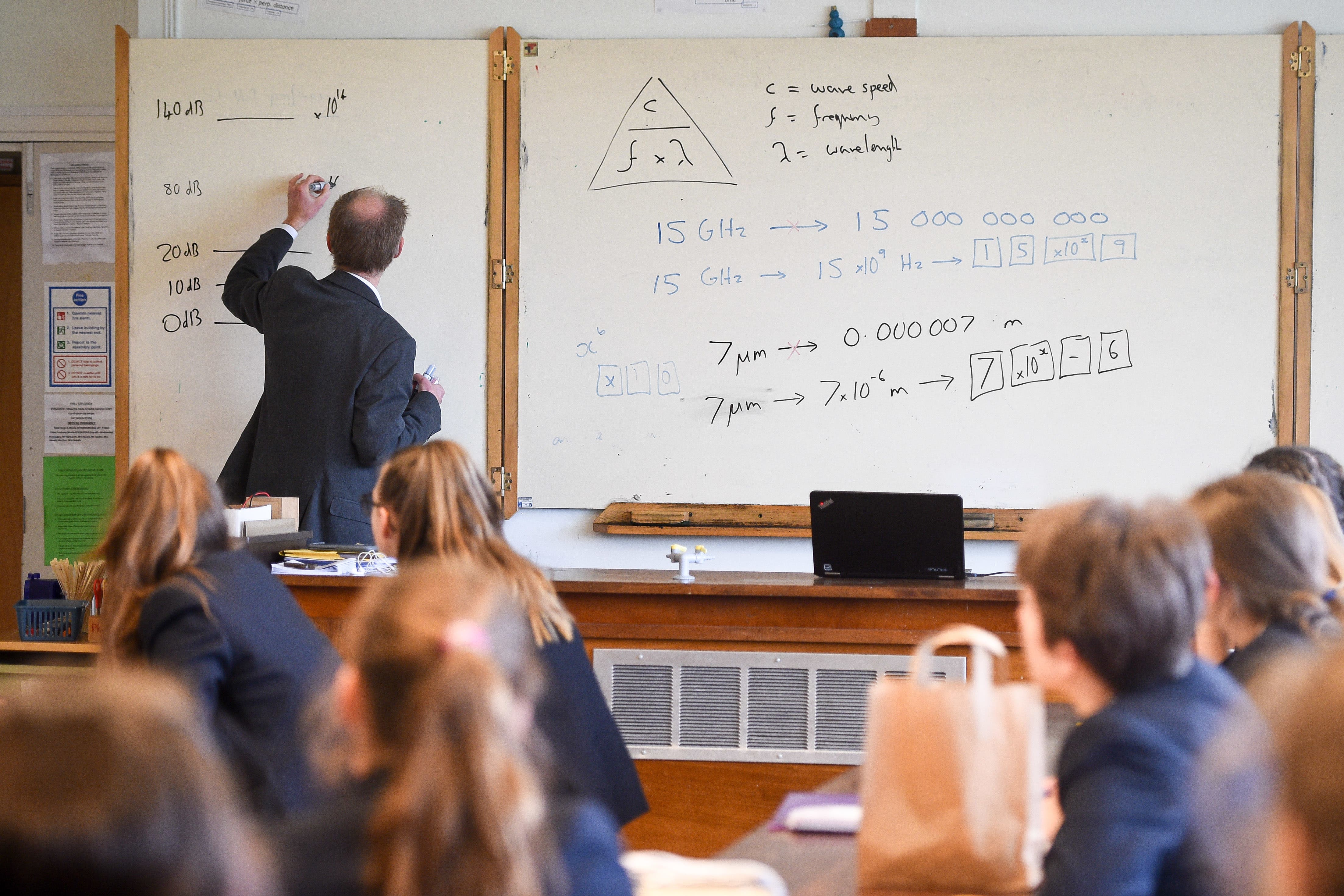‘Review to urge legal protection from blasphemy claims for teachers’
Around 16% of teachers admitted to self-censoring in order to avoid causing religious offence, according to a survey from November.

Your support helps us to tell the story
From reproductive rights to climate change to Big Tech, The Independent is on the ground when the story is developing. Whether it's investigating the financials of Elon Musk's pro-Trump PAC or producing our latest documentary, 'The A Word', which shines a light on the American women fighting for reproductive rights, we know how important it is to parse out the facts from the messaging.
At such a critical moment in US history, we need reporters on the ground. Your donation allows us to keep sending journalists to speak to both sides of the story.
The Independent is trusted by Americans across the entire political spectrum. And unlike many other quality news outlets, we choose not to lock Americans out of our reporting and analysis with paywalls. We believe quality journalism should be available to everyone, paid for by those who can afford it.
Your support makes all the difference.An independent review into political violence and disruption will recommend that teachers be legally protected from blasphemy claims by religious groups, the Times has reported.
According to the newspaper, the report by the Government’s adviser on political violence and disruption, Lord Walney, will urge the Department for Education (DfE) to issue schools with statutory guidance to protect teachers’ freedom of expression.
The guidance would also say schools should not automatically suspend teachers over blasphemy claims and would prevent schools from publicly identifying teachers involved.
Under the proposals, schools would not be obliged to consult parents, faith or community groups on educational content that might insult religious groups.
The Times said the report, due to be published next week, is understood to have placed emphasis on making the guidance statutory.
Lord Walney declined to comment.
A Government spokesman said: “Extremism of any kind has no place in our society and we will not tolerate tactics that set out to intimidate, threaten or cause disruption to the law-abiding majority.
“In recent months, we have also witnessed a small number of protesters display violent and hateful behaviour, and the police have our full support in tackling extremism and hate crime.
“We will consider the report’s final recommendations extremely carefully and will respond in due course.”
Last November, a YouGov survey of more than 1,000 teachers conducted for the Policy Exchange think tank found 16% of them admitted having self-censored in order to avoid causing religious offence.
The think tank claimed this had created a “de facto blasphemy code in schools across the country”.
It made reference to the Batley Grammar School incident, where a teacher was forced into hiding and received death threats after showing a class a picture of the prophet Muhammad, and said it had “clearly scared the teaching profession”.
Some 55% of teachers polled said they would never use an image of the Islamic prophet in class and a further 9% cited the Batley incident as the reason they would not do so.
Half of teachers said there would be a risk to their safety if protests similar to the ones which sprang up outside the school gates in Batley took place, with one in five saying there would be a “very big risk”.
A total of 1,132 teachers from across the UK took part in the survey.